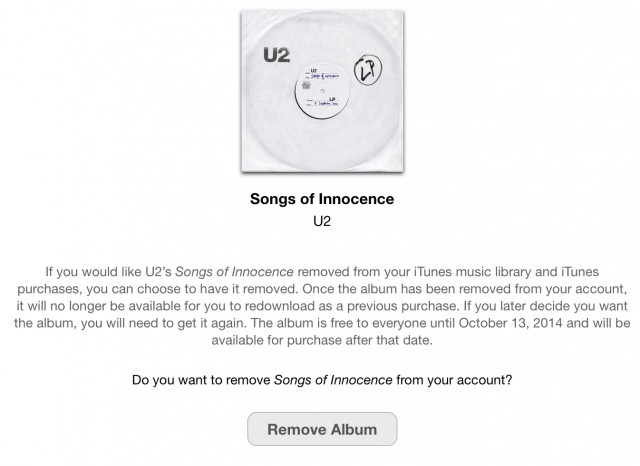Execution is everything.
Musical tastes are personal. And it seems that force-feeding people a new album from U2, unsolicited, doesn’t go over well. Apple giving away U2’s new Songs of Innocence is in itself not a bad thing. But there are two problems. One, the album is poorly reviewed – think Paul McCartney “Wonderful Christmastime” rather than Abbey Road. Two, because the album simply appeared in purchased music – and because iTunes (cleverly enough) displays what you’ve purchased from iCloud – it showed up in people’s collections when it didn’t belong.
So, we’ve learned something. This doesn’t work. And as always, you can’t really buy marketing. That is, sure, Aphex Twin rented a blimp, but in the end, they had more successful viral marketing because they let their fans choose to spread their new release. U2 tried to force that promotion, and even though Apple and U2 are loved by many people, the combination comes across as corporate and inauthentic.
Peter Cohen shouts at the Internet over this, but I think that’s because he’s in the unfortunate position of reading lots of tech blogs.
This isn’t a “self-indulgent, first world problem.” It’s a textbook case study in the difference in power between word-of-mouth and a poorly executed promotion.
I know lots in the music production community who were offended by the U2 move, too. And there’s a reason for that. Apple may be a big corporation, but they aren’t Coca-Cola. They’re Bic pens, or a Nikon camera, or a Gibson guitar – we use the product to make things. And they’re an RCA turntable or a pair of Sennheiser headphones, Technicolor film or a book printed by Penguin. We use the product to take in stuff we love, too. Apple’s marketing has lately been really cleverly sensitive to this (and has featured a lot of great music making apps, too). So the U2 record proved, like the release, to be a bit deaf.
There will be subtler cases of this. If YouTube or Spotify or SoundCloud tries to tell you what to like, if Facebook ultimately buries your friends under ads, it’s a problem, not because advertising can’t work, but because it can obscure the reasons to use those services. Heck, I even have to protect my own personal authenticity and CDM’s. So, yes, sometimes the reaction on the Internet overdoes the tone a bit. But filter out that tone and you’ll know what’s working and what isn’t.
And every PR person in music, every record label looking to promote a new release ought to pay attention to what has happened here. I will meanwhile enjoy scoring this Aphex Twin 1, U2 0.
And if that doesn’t say it all, this does:
Songs of Experience.
More related to this story:
Writing for Time, Pat Regnier notes that part of the problem here is confusion about how cloud functionality works in iTunes. “Hate” is a strong word, I think, but people are certainly puzzled.
People Don’t Hate U2 Nearly as Much as They Hate iTunes
TechCrunch notes the rising importance of exclusives and the like, though I think this case demonstrates that backlash is a real risk:
The Music Industry Is About To Change, And Apple And U2 Are Just The Beginning
Berlin-based DJ and music pundit BarbNerdy notes that article. And speaking of backlash, she also notices that we’re starting to see promoted tracks in SoundCloud. That seems to be a bigger potential problem for the Web service than the (opt-in only, someday subscription opt-out) advertisements.
Behold:
And I think this is why people are spooked. Do they really care about one U2 album? No. But this represents the world of music you don’t want, which to me is worse than advertisements. It’s payola all over again, more explicit than ever.
